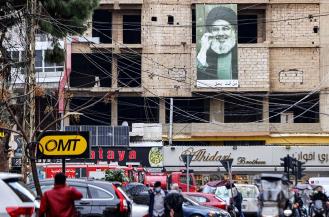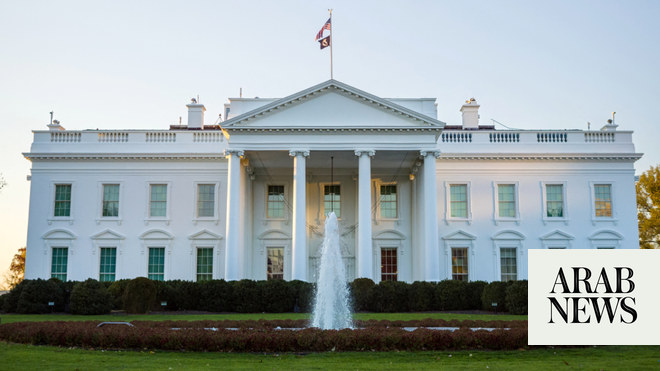
In the unrelenting pace of events that involves Israel and its neighbors, one can be forgiven for losing focus on where the next menacing crisis may emerge. Much attention has been diverted, with great justification I hasten to say, to events on Israel’s border with Gaza, to the opening in Jerusalem of the relocated US embassy, to the decision by President Trump to opt out of the Iran nuclear deal, and to Israeli airstrikes in Syria. This is a busy enough agenda to occupy decision makers, and the public, around the clock.
However, tensions between Lebanon, or more accurately Hezbollah, and Israel have somehow fallen off the radar, even though a devastating war between the two is not beyond the realm of possibility and would have horrendous consequences for both. In the internal logic of blunt threats between Israel and Hezbollah, the worse the rhetoric of war becomes, the more obvious it is that neither side is interested in renewing hostilities, because they are deeply worried about the consequences. Nevertheless, it remains a real possibility that they may talk themselves into war, or that one would be triggered by events elsewhere, especially in Syria where there is growing military friction between Israel and Iran, Hezbollah’s main ideological inspiration, political guide, paymaster and weapons supplier.
In the triangle of Israel–Lebanon–Syria relations, it is Iran that connects the dots, trying to advance its interests by destabilising the region, expanding into weakened areas and imposing its own agenda. For years Israeli decision makers have perceived Iran and its proxy militia in Lebanon as an existential threat, although Prime Minister Benjamin Netanyahu and his political allies are happy to exploit Iran as a convenient diversion from other complex issues that they are either unable or unwilling to address.
For Israel, Iran is the arch pantomime villain in the Middle East theater, and Hezbollah is its frontline arm.
Yossi Mekelberg
The full impact of the surprise success of Hezbollah and its allies in last month’s Lebanese parliamentary elections has yet to be felt. Will political responsibility encourage relative moderation? Or will we see exactly the opposite, with the election outcome seen by its leadership as a mandate for a more militant approach, including the movement’s deep involvement on the side of the Assad regime in Syria, and an escalation of its actions aimed at provoking Israel?
Logic dictates that there is enough bitter experience and tragic memories on both sides of the border to avert another military conflict. But there is no guarantee that rational decision-making will prevail. One of the worst perceptual and operational fiascos in Israel’s military history was the invasion of Lebanon in 1982, with the tacit objective of regime change in Beirut. The president designated by Israel, Bashir Gemayel, was assassinated by the Syrian intelligence service within days of coming to power and being forced to sign a peace agreement with his southern neighbor. And instead of peace, Israel left a trail of destruction, including thousands of civilians and hundreds of its own soldiers dead, and a new enemy, Hezbollah. It took it 18 years to leave the country with its tail between its legs. Nearly a quarter of a century later the experience of another war between Hezbollah and Israel produced no conclusive result, and was based on another unsubstantiated Israeli assumption that hurting Lebanon as a whole in a conflict with Hezbollah would lead to pressure on the latter to yield to Israeli will. This plan was also a failure, and the 2006 war ended in another stalemate, although Hassan Nasrallah, Hezbollah’s secretary-general, has been in hiding ever since.
For Israel, Iran is the arch pantomime villain in the Middle East theater, and Hezbollah is its frontline arm. It is not only the belligerent statements from Nasrallah that are a major cause for concern; more importantly, it is the capabilities accumulated by the organization over a more than a decade, since the last major round of hostilities with Israel. Close work with Russian and Iranian commanders has improved the organization’s fighting capabilities. Its military force has more than doubled to 45,000 since the last time it met Israel on the battlefield. Its troops have suffered severe losses during the years of involvement in the Syrian conflict, but they have also gained operational experience in a complex and intense military environment. Moreover, Hezbollah now possesses about 120,000 rockets and missiles, 10 times more than in 2006, with a range that covers the entire state of Israel, not to mention hundreds of drones that can carry explosives and SA-22 anti-aircraft missiles.
Israel has invested immense efforts, with limited success, in attempting to prevent the transfer of advanced weapons and ammunition from Iran to Lebanon, via Syria. Its growing nervousness about Hezbollah’s increasing military capability is evident from the ever-increasing frequency of attacks on Iranian installations and arms convoys heading to Lebanon. If the presence of Iran’s Revolutionary Guard and other military personnel in Syria is a longer-term threat to Israel, a war with Hezbollah is perceived as a more immediate danger which, should it materialize, could end with the worst civilian casualties in Israel’s history. Consequently, both senior government officials and generals in Israel are claiming in no uncertain terms that if such a scenario were to become reality, Israel would literally destroy Lebanon; or, as others put it, turn it into a country of refugees. There is no appetite for this on either side, but their demagogues and deeds might lead to it regardless.
Yossi Mekelberg is professor of international relations at Regent’s University London, where he is head of the International Relations and Social Sciences Program. He is also an associate fellow of the MENA Program at Chatham House. He is a regular contributor to the international written and electronic media. Twitter: @YMekelberg
Disclaimer: Views expressed by writers in this section are their own and do not necessarily reflect Arab News" point-of-view












